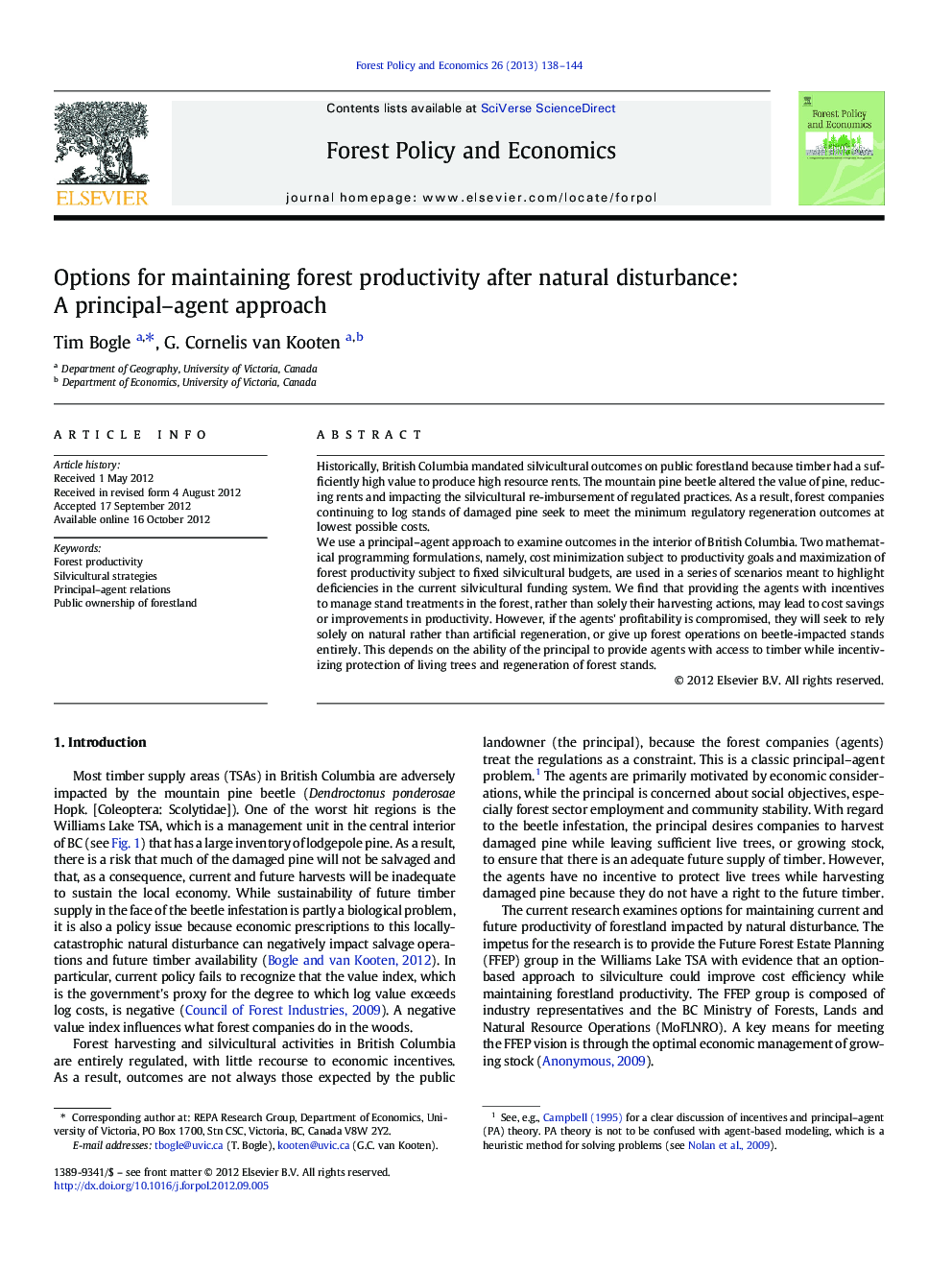| کد مقاله | کد نشریه | سال انتشار | مقاله انگلیسی | نسخه تمام متن |
|---|---|---|---|---|
| 91343 | 159785 | 2013 | 7 صفحه PDF | دانلود رایگان |

Historically, British Columbia mandated silvicultural outcomes on public forestland because timber had a sufficiently high value to produce high resource rents. The mountain pine beetle altered the value of pine, reducing rents and impacting the silvicultural re-imbursement of regulated practices. As a result, forest companies continuing to log stands of damaged pine seek to meet the minimum regulatory regeneration outcomes at lowest possible costs.We use a principal–agent approach to examine outcomes in the interior of British Columbia. Two mathematical programming formulations, namely, cost minimization subject to productivity goals and maximization of forest productivity subject to fixed silvicultural budgets, are used in a series of scenarios meant to highlight deficiencies in the current silvicultural funding system. We find that providing the agents with incentives to manage stand treatments in the forest, rather than solely their harvesting actions, may lead to cost savings or improvements in productivity. However, if the agents' profitability is compromised, they will seek to rely solely on natural rather than artificial regeneration, or give up forest operations on beetle-impacted stands entirely. This depends on the ability of the principal to provide agents with access to timber while incentivizing protection of living trees and regeneration of forest stands.
► Natural disturbance exacerbate the policy issues in principal-agent relationships.
► Government (principal) LRSY goals conflict with company (agent) cost minimization.
► Forest management flexibility can achieve mandated outcomes at lower cost.
► Stand-level obligations may not efficiently lead to the best forest-level outcome.
Journal: Forest Policy and Economics - Volume 26, January 2013, Pages 138–144